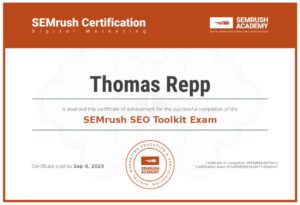 I kept count today how many times I used an expletive every time I was hit with an intrusive and annoying pop-up ad on the web or was annoyed by the 100’s of display ads on an otherwise useful web page I was reading. Not to mention the robo-calls on my phone.
I kept count today how many times I used an expletive every time I was hit with an intrusive and annoying pop-up ad on the web or was annoyed by the 100’s of display ads on an otherwise useful web page I was reading. Not to mention the robo-calls on my phone.
I lost count at about 2pm in the afternoon. But I think I was in the 800’s
Pop-up ads, unwanted display ads, unwanted email marketing, unwanted Linkedin messages destroy any trust that might be earned by otherwise good online content.
In the dynamic landscape of business-to-business (B2B) marketing, mid-size industrial companies are at a critical juncture where traditional, intrusive marketing methods are proving to be increasingly ineffective.
And really pissing off your buyers.
As the global marketplace evolves, the need for segmented, personalized and customer-centric approaches becomes paramount for sustained success for savvy industrial marketers.
Another way to better define customer-centric marketing would be to call it inbound marketing. Inbound marketing delivers high quality content through channels such as blogs, social media, email and great SEO that delights and engages your industrial buyers at a time of their choosing..the opposite of intrusive outbound marketing.
This article delves into the reasons why intrusive marketing is destined to fail for mid-size B2B industrials and why adopting customer-centric strategies is not just a choice but a strategic imperative.
One of the primary challenges mid-size B2B industrials face with intrusive marketing is the changing nature of your industrial buyer’s behavior. In an era dominated by information abundance, decision-makers within industrial sectors are more discerning than ever. Bombarding them with unsolicited messages and interruptive advertising not only fails to capture their attention but can also lead to a negative perception of the brand and destroys trust. As B2B buyers increasingly conduct thorough research before making purchasing decisions, a shift towards providing valuable, relevant content becomes crucial.
Furthermore, mid-size industrial companies often operate within niche markets, where relationships and trust play pivotal roles in business transactions. Intrusive marketing tactics can erode this trust and damage the long-term relationships these businesses strive to build. By contrast, adopting a customer-centric approach involves understanding the unique needs and pain points of clients, fostering trust, and positioning the company as a reliable partner rather than just a service provider.
The rise of digital communication channels has also altered the B2B marketing landscape. While email campaigns and cold calls were once staples of marketing strategies, they are now met with skepticism and, in some cases, outright rejection. Mid-size industrials must embrace the shift towards inbound marketing, creating valuable content that draws potential clients in rather than pushing messages outward. This approach not only aligns with the changing preferences of B2B buyers but also allows companies to position themselves as thought leaders within their respective industries.
Moreover, intrusive marketing is often associated with a lack of personalization. In a world where consumers are accustomed to personalized experiences, from targeted social media ads to curated content recommendations, mid-size B2B industrials cannot afford to disregard the buyers’ expectation. Customer-centric strategies involve tailoring marketing efforts to address the specific needs and challenges of individual clients, fostering a deeper connection and increasing the likelihood of a sales conversion.
The data-driven nature of modern marketing also underscores the importance of customer-centricity. By leveraging marketing automation platforms like HubSpot and data analytics mid-size industrials can gain valuable insights into customer behaviors, preferences, and pain points. These insights can inform targeted, relevant marketing campaigns that resonate with the audience, leading to higher engagement and conversion rates. In contrast, intrusive marketing often lacks the precision necessary to navigate the nuances of the B2B, highly segmented landscape.
In conclusion, the era of intrusive marketing is fading, especially for mid-size B2B industrial companies. To thrive in the evolving business landscape, B2B companies must pivot towards customer-centric strategies that prioritize relationship-building, personalization, and valuable online content creation. By doing so, mid-size B2B industrials can not only stay relevant but also establish themselves as trusted partners in their respective industries, fostering long-term success in an increasingly competitive marketplace.
Need a little help crafting your B2B marketing strategy? , give me a call or contact me via email.
Author:Tom Repp
A passionate marketer attempting to change the way industrial marketers leverage the web as a growth-oriented, lead generation machine. View all posts by Tom Repp






